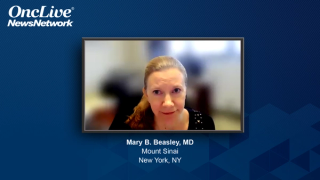
Lung Cancer
Latest News

Frontline BMS-986012 Plus Nivolumab/Chemotherapy Shows Promise in ES-SCLC

Consolidation Durvalumab Shows Consistent Survival Benefit in LS-SCLC Regardless of Prior PCI and CRT Components
Latest Videos

CME Content
More News

The DUBLIN-3 trial showed plinabulin plus docetaxel improved survival in EGFR wild-type non–small cell lung cancer.
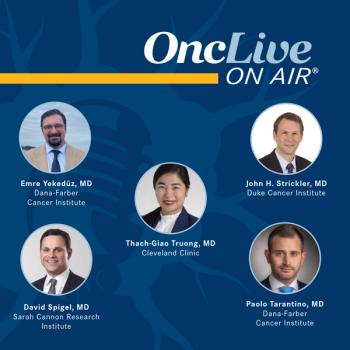
Experts from across oncology specialties discuss the abstracts and presentations they are most looking forward to seeing at the 2024 ESMO Congress.
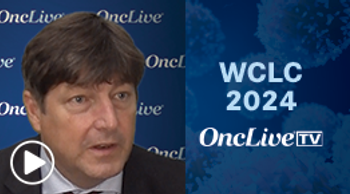
T. Jeroen N. Hiltermann, MD, discusses findings from phase 1/2 ARTEMIDE-01 trial.

Patients with EGFR-mutated NSCLC demonstrated reduced symptom progression when treated with amivantamab plus lazertinib vs osimertinib.

T-DXd showed clinical activity regarding responses and survival outcomes in patients with pretreated HER2-overexpressed metastatic non–small cell lung cancer.
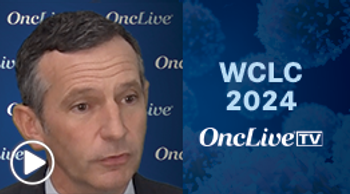
Benjamin Besse, MD, PhD, discusses findings from the phase 3 CARMEN-LC03 trial.

Luis Raez, MD, highlights considerations with phases of treatment in lung cancer, detailing factors affecting use of adjuvant therapy when a patient has a complete response.

Tusamitamab ravtansine vs docetaxel was not significantly different regarding survival in patients with advanced nonsquamous non–small cell lung cancer.

Neoadjuvant durvalumab plus chemotherapy and adjuvant durvalumab improves event-free survival in stage IIA-IIIB resectable non–small cell lung cancer vs. placebo.

Xiuning Le, MD, PhD, discusses updated findings from the phase 1/2 SOHO-01 trial.

The safety profile of adjuvant alectinib was tolerable and manageable in ALK-positive NSCLC.

Tarlatamab demonstrated durable responses and long-term tolerability in patients with previously treated small cell lung cancer.

Rilvegostomig induced responses with acceptable tolerability in patients with checkpoint inhibitor-naive, metastatic NSCLC.
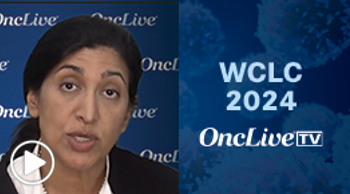
Natasha B. Leighl, MD, BSc, MMSc, discusses patient satisfaction and resource utilization results from the phase 3 PALOMA-3 study.

THIO followed by cemiplimab generated a potential overall survival benefit in third-line advanced non–small cell lung cancer.

Luis Raez, MD, details several potential lung cancer biomarkers under investigation including the plasma proteomics–based PROphet test.
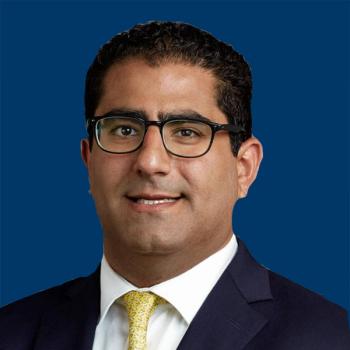
Joshua K. Sabari, MD, discusses the significance of the FDA approval of first-line amivantamab plus lazertinib for patients with EGFR-mutant NSCLC.
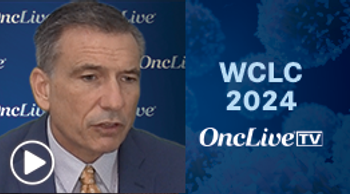
John V. Heymach, MD, PhD, discusses updated outcomes from the AEGEAN trial of perioperative durvalumab vs placebo in resectable non–small cell lung cancer.

Neoadjuvant pembrolizumab plus chemotherapy led to greater pathologic regression vs placebo plus chemotherapy in early-stage non–small cell lung cancer.
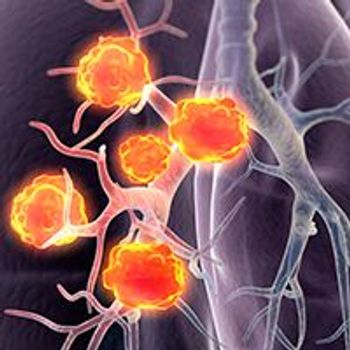
The combination of osimertinib/savolitinib demonstrated a significant improvement in ORR in de novo MET-aberrant, EGFR-mutant advanced NSCLC.

Treatment with firmonertinib was safe and effective for patients with EGFR P-loop and αC-helix compressing-mutated non–small cell lung cancer.
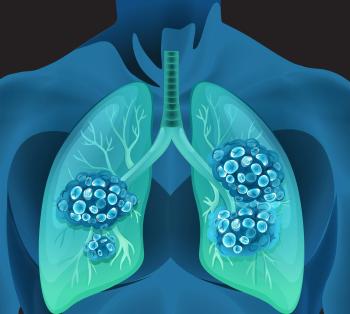
Treatment with aumolertinib led to an improvement in progression-free survival in unresectable, stage III, EGFR-mutated non–small cell lung cancer.

Zongertinib demonstrated clinically meaningful efficacy in previously treated HER2-mutated non–small cell lung cancer.

BAY 2927088 demonstrated durable response rates for patients with pretreated HER2-mutant non–small cell lung cancer.

Treatment with sacituzumab govitecan in the second-line setting yielded antitumor activity in patients with extensive-stage small cell lung cancer.





































